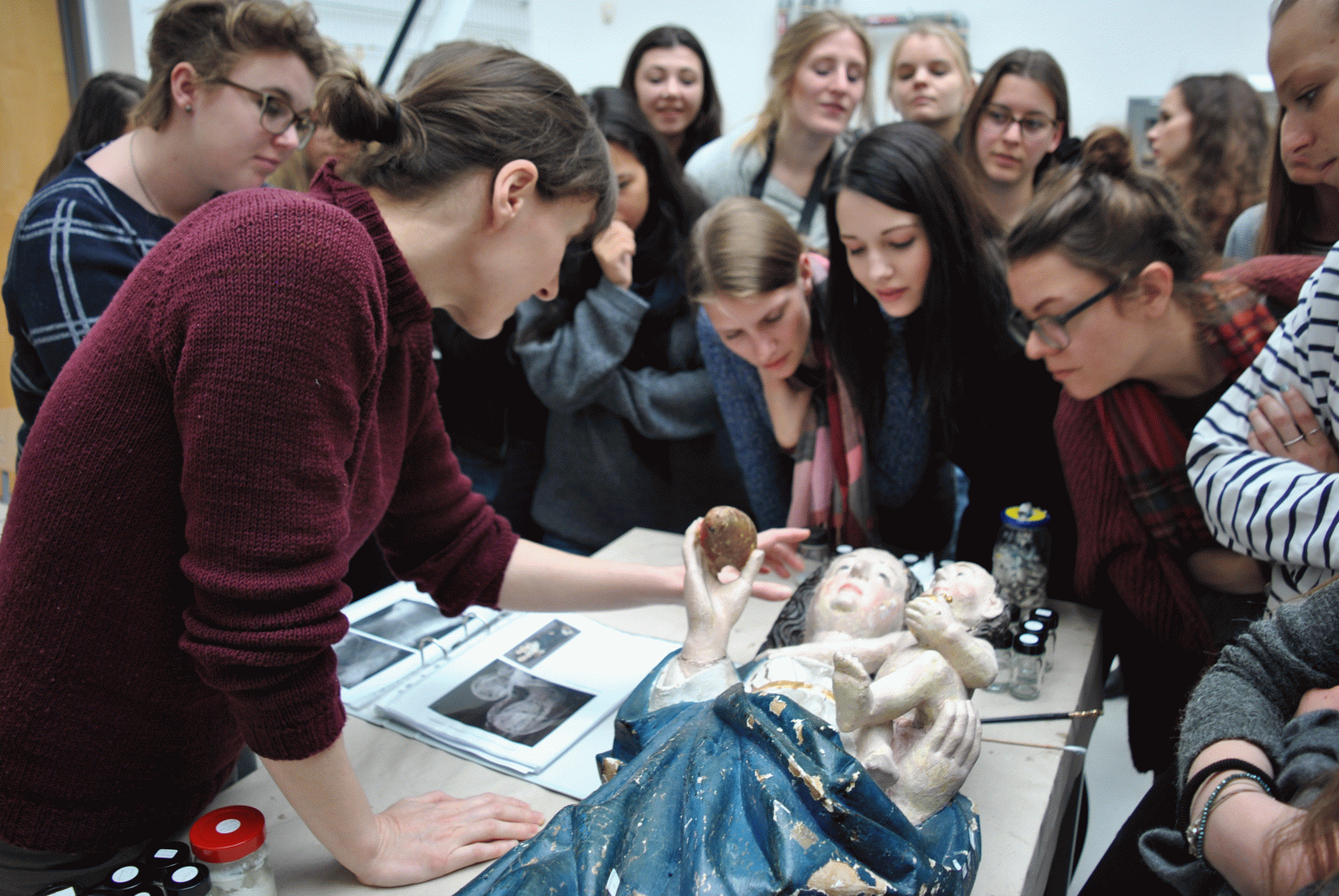KHI 2021+ Lecture Series
Karin Leonhard: Caring for Art

Student Seminar, Konstanz University
My talk argues for closer integration of theory and practice in the training of students and doctoral candidates in art history. It is a response to the loss of reciprocal exchange between material and theoretical or historical knowledge occasioned by the breakup of disciplines in the mid-twentieth century—itself a reflection of the widening gap between the humanities and natural sciences—which has had a significant impact on professional practice in both areas. It is my contention that research and practice need to be structurally related, supplementing each other, in that practical aspects of restoration and art technology are integrated into art history training from the outset, and that equally early art-historical studies take these practical realms into account and integrate scientific methods into their reasoning. However, it is not simply a matter of the art historian’s use of material and technological findings as a way of “fixing the object,” and correspondingly being able to read, apply, and interpret them; such knowledge can be of the greatest importance for the analysis and interpretation of a work of art, the determination of its aesthetic and semantic dimensions. Conversely, a greater knowledge of art and cultural history can influence significantly conservation and restoration decisions. Close cooperation and dialogue across disciplines is obviously crucial in complex negotiations regarding the care of our cultural heritage.
Karin Leonhard is Professor of Art History at Konstanz University, Germany. Before this, she has been Professor of Art History at Bonn University, Senior Fellow at the Max Planck Institute for the History of Science, Berlin, as a member of the research group ‘Art and Knowledge in pre-modern Europe’, and Assistant Professor at the Department of Art History, KU Eichstätt-Ingolstadt, Germany, where she returned after a two-year research fellowship at the Kunsthistorisches Institut in Florenz – Max-Planck-Institute. She received her doctorate in Munich with a dissertation on optics and perspective in Vermeer's interior paintings, and since then she has specialized in the history of science and art of the early modern period. A main focus of her research lies in the history and theory of space and perspective and of light and color. She has also studied the interrelationship between art theory and natural philosophy, and, more recently, aims to enhance the dialogue between art history, art technology, and conservation and restoration sciences.
This talk is part of the KHI 2021+ Lecture Series, organized by the doctoral and postdoctoral fellows, in collaboration with scientific staff and senior scholars of the Institute. It is envisioned as a forum to reflect on the futures of Art History through conversations with innovative voices in the discipline, working in different areas but sharing methodological concerns.
08. April 2021, 15:00 Uhr
KHI 2021+ Lecture Series
The event takes place online.
Hinweis
Diese Veranstaltung wird durch Fotografien und/oder Videoaufnahmen dokumentiert. Falls es nicht Ihre Zustimmung findet, dass das Kunsthistorische Institut in Florenz Aufnahmen, auf denen Sie erkennbar abgebildet sein könnten, für die Veranstaltungsdokumentation und Öffentlichkeitsarbeit (z.B. Social Media) verwendet, bitten wir um eine entsprechende Rückmeldung.


